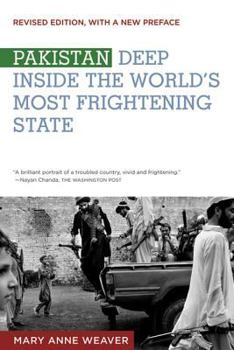Pakistan
Select Format
Select Condition 
Book Overview
No nation is more critical to U.S. foreign policy than nuclear-armed Pakistan. Wedged between India and Afghanistan, it is the second largest country in the Islamic world. But with militant Islamists now expanding their control over some of the country's most strategically sensitive areas, there is a growing fear that Washington's most stolid ally in South Asia--at least ostensibly--is unraveling, and perhaps is even on the verge of collapse. With a dozen or so private Islamist armies, a hundred or so nuclear weapons, and a dysfunctional government, Pakistan is considered one of the most dangerous places on earth. Its disintegration would pose an unthinkable threat to the United States and the West, including the prospect of its nuclear arsenal being captured by religious extremists.
In Pakistan, Mary Anne Weaver presents her personal journey through a country in turmoil, reconstructing, largely in the voices of the key participants themselves--General Pervez Musharraf, General Muhammed Zia, and the assassinated former prime minister Benazir Bhutto--the legacies now haunting Pakistan in the aftermath of the U.S.-sponsored jihad in the 1980s in Afghanistan. Combining deep geopolitical intelligence with a vivid portrait of a land--of its people, its mystery, and its clans--Pakistan provides an essential background for anyone who wants to understand the single most urgent problem facing the international community.





